(As told by Maria Kemp)
For six generations, my family has owned a ranch in Bishop, CA, a small town on the east side of the Sierra Nevada mountains. I grew up on the family ranch and my husband, Matt, grew up on his own ranch, and we both loved it. Because we grew up this way, it’s been very natural for us to raise our own three kids working on our ranch. Our career is also our lifestyle.
We summer our cattle up in Long Valley, about 40 miles from home. The kids are there with us almost every summer day by default. It sometimes makes for a chaotic drive, with plenty of wrestling in the back seat, but we always bring them with us. We don’t have daycare or anything—it’s just what our family does. The kids have learned to work right alongside us.
The kids have been riding with us since they were babies in the front pack, at least on the easier days. Then they transition to riding in front of me on a very safe, gentle horse. By the time they’re three, they are being led on their own horse. They are on their own by four or five. By that age, you can count on them to be decent help to turn the cows if you need it. Our kids are now six, nine, and eleven, and are a great help.
Teaching the kids to work really happens organically, over the course of time, because it has to. The kids don’t really have any other option. We just say, “Here’s what we’re doing today and we’re doing it as a family because it’s a family ranch.”
Our kids are the sixth generation of kids working on our ranch. Family is really the reason we have this legacy. I don’t want to be the generation to let it fall apart. We teach them all to pitch in with the work. We’ll raise them to know how to run a ranch, and then it’s up to them whether they want to come back and do it themselves. But at least they’ll have the skills, so they can choose to be ranchers or not.
We feel good that we’re equipping them with these life skills, regardless of what they end up choosing for their own careers. The hard work they’re doing will translate into anything they want to do.
Seasonal Work
Our work really varies from season to season. In the winter, the kids wake up and before we eat our breakfast they go out and feed hay to horses, cattle and sheep.
Another unique thing we do here every winter is lamb out 30 sheep. That means we help the mothers with any problems they have while giving birth. The kids are really active in that. Its very hands on—you have to watch them and sometimes assist with labor and we put them in little individual pens. Then each one of those has to be fed and watered. It requires a lot and I actually really rely on the kids, probably more than I even realize. But honestly, they’re really excited and motivated during lambing season. They love running out in the morning to see if there are any new baby lambs.
Then we go into spring cow work. The kids are in school for a lot of that. On weekends, they’re definitely branding calves with us. Will has just started roping horseback, which is extremely scary for parents to watch, but also really rewarding because he’s doing very well.
Then in the summer we drive to where our cows are, and every time we’re up there, they’re with us. They still have to feed their 4-H animals in the mornings and evenings and we have meetings to work with those on showmanship skills once or twice a week for about an hour.
Some summer days I think, “I would just like to be at the pool today,” but I know it will pay off in the end, because I’ve been through it myself. I loved growing up on a ranch. Of course, I don’t really know any different.
Then in the fall they go back to school and again that’s their main focus. But if it’s time to go up and gather cattle we may pick them up right after school and go up to the ranch.
They are also juggling year-round sports. They each play soccer, basketball, and baseball/softball. While many days of school, ranch work, and sports are exhausting, I hope it also teaches them how to juggle busy times in the future.
4-H and FFA
A big driving force for me growing up was 4-H and FFA. We would get out of school for summer and we’d be working with our animals most of the day or up working on the ranch.
I guess we were pretty isolated in the beginning of the summer. But then the fair was mid-July, so we’d see all our friends as we showed our animals together. It was like a big reunion and so much fun. Then we’d do any summer traveling in the last few weeks of the summer.
It’s a big responsibility raising your own animals when you are the only caretaker. You’re solely responsible for their health and well-being. You have to make sure they’re fed several times a day.
My kids are doing that now. I don’t touch their animals at all. It’s all up to them. They feed their animals twice a day, and report back to me. They keep record books with all their expenses and notes on their projects.
I recently helped judge all the 4-H kids’ record books, and they had to write little stories as part of it. Most of them talked about how 4-H is making them more responsible people because they’re not always inside playing video games. There are animals that are depending on them. If you don’t feed them, they’re going to die.
A lot of people feel intimidated about raising a market animal for 4-H or FFA, but in my opinion it’s one of the easiest ways to teach kids real responsibility, because, yes, it’s a lot of work, but it’s only for a few months out of the year.
Motivating the Kids to Work
Sometimes when Matt gives the kids simple chores around the house, he’ll give them two choices, like “Do you want to go pick up the dog manure or do you want to go feed and water the chickens and collect eggs.” They’re working either way, and helping our family, but they do get some choice in the matter. They feel like they have a little more control that way. The one choice they can’t make is just sitting here and being lazy while everyone else is out helping.
I could probably ask the kids to do more household chores, but they are responsible for keeping their rooms and bathrooms clean. We usually check in on their rooms and bathrooms when we’re home on a Saturday. But I don’t have a chart I check off every day or anything.
We have such a haphazard schedule that we just kind of all pitch in when we’re all home. When we find the time, we just knock it out and get it done together. Then we can go out and play or relax. We don’t have any video games or anything, just tablets that they use on road trips.
Don’t get me wrong—our kids are not always excited to help out. They’re still kids. Sometimes the kids grumble—the early mornings can be rough for everyone, but early mornings are just part of life. We make sure we have clothes laid out the night before and have a pre-made breakfast to try to make things as streamlined as we can.
I often reflect on the advice given to me by a friend when I complimented her adopted son’s manners. She told me that she and her husband compare teaching traits such as manners and work ethic to their kids to that of growing bamboo. She said first bamboo puts down deep roots underground before the beautiful stalk is even seen above the surface. She said many days our lessons can seem futile, like the kids aren’t listening or showing growth, but then you see glimpses of their roots blossoming into manners or work ethic when you wouldn’t have otherwise expected it. You realize they are soaking up more than you may realize through day-to-day life lessons.
On the long cow-working days, it’s just kind of expected that they’ll be out working all day. I hope they enjoy it, because it’s also how we spend time as a family. Right now it’s working out. I love the days when all five of us are out working with the cattle and grandparents are out there too. It’s just really cool that we can all work together for a living. It’s a really neat opportunity.
So yes, there are intrinsic rewards for working, like spending time as a family, but there’s also cash. We teach them early that this work is how we make a living. Hard work equals money in the bank.
We don’t do allowances. The kids earn money. Will, who is old enough to sell 4-H animals makes a good amount to put away in a savings account. Ben isn’t old enough yet, but takes a great interest in helping me with the baby lambs, so he earns one lamb each year and I have the buyer write the check to him.
This money really adds up. After nine years of saving money from raising 4-H animals myself, I was able to split the down payment of our first house with my fiancé (now husband).
It helps that my husband grew up the same way. I know that sometimes when you’re raised differently, it can be hard for a couple to see eye-to-eye about how to raise their kids. But we were very blessed to be raised more or less the same.
I’m hoping that down the road all this hard work will pay off and make my kids’ future easier for them because as adults they’ll just know how to work and it won’t be such a shock.
About this Mom
Maria Kemp raises cows and kids. She grew up active in 4-H, FFA, sports, and the family ranch. She has a bachelor of science degree in animal science from Oklahoma State University and a master of science degree in cow nutrition from New Mexico State University. Maria has been married to her husband Matt for 12 years., and they have three children, Will, 11, Ben, 9, and Kate 6. Now that all the kids are in school, she splits her time between the ranch and as a substitute teacher. She is also a 4-H leader helping local youth raise animals.

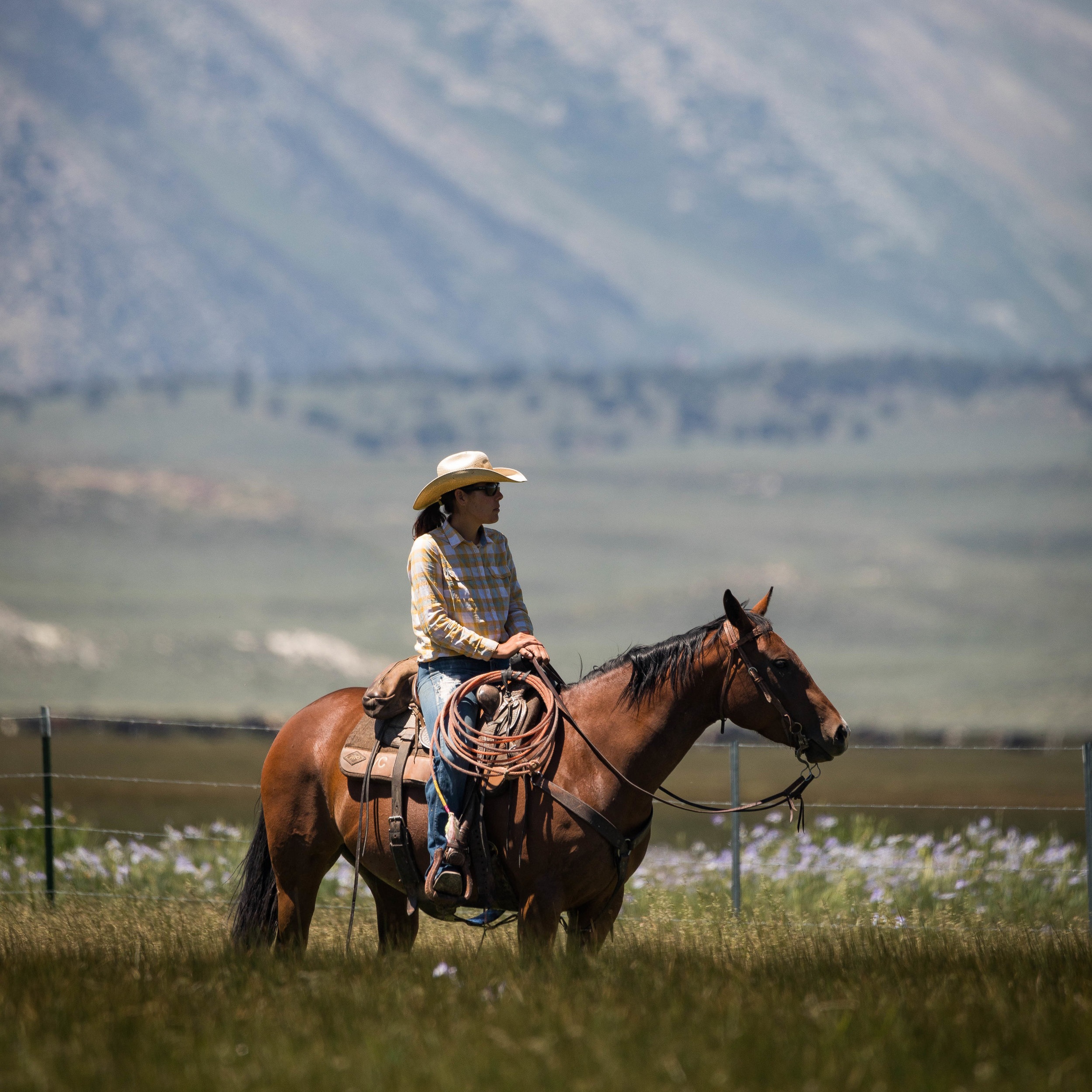












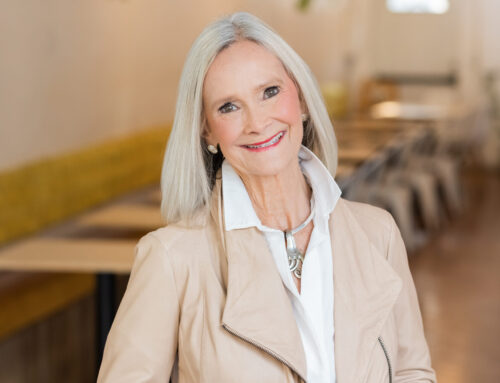
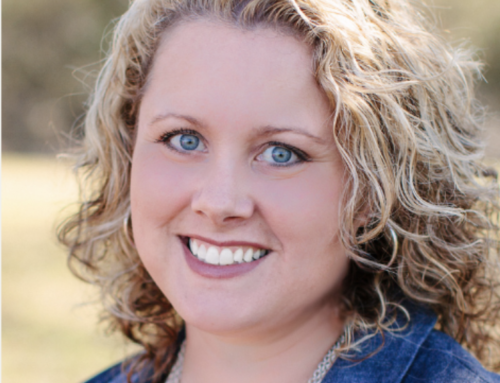
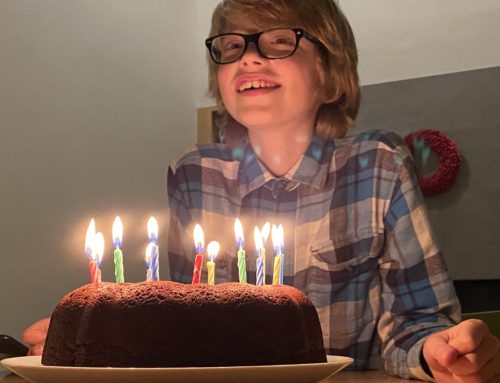
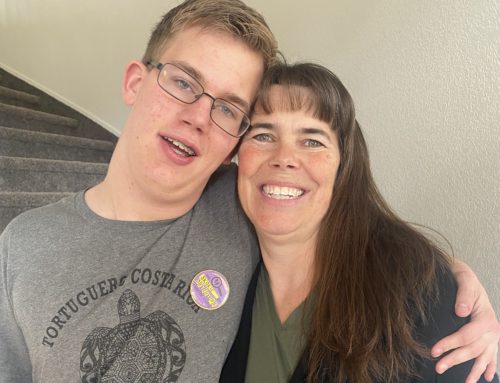
Maria Kemp is not only a hard working good mother, wife and friend, she has a heart of gold!
She does this all with great grace as well! Even with all that hard work, the kids are on time to school with homework all done! Amazing mom raising amazing kids!
How inspiring! There are lessons for all of us in your work and words – well done friend.
Maria also coaches my granddaughters soccer team :)
Love this Story!! FARM FAMILIES ROCK !!